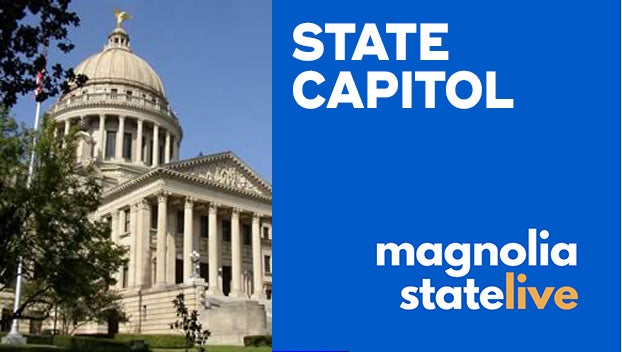Alive or dead? Here’s a rundown on bills in Mississippi Legislature
Published 9:11 pm Tuesday, February 2, 2021
Mississippi legislators could allow home delivery of beer, wine and liquor. But they are still holding out against letting grocery stores sell wine. They are looking at ways to ease prison crowding. But they are also considering tougher penalties for people caught stealing pecans — including prison time.
Tuesday was the first big deadline of the 2021 legislative session. It was the final day for House and Senate committees to consider general bills and constitutional amendments filed in their own chamber. Measures that survived the deadline move to the full House or Senate for most debate. There are later deadlines for budget and revenue bills.
Here is the status of some general bills:
ALIVE
ALCOHOL — House Bill 1135 and Senate Bill 2804 would allow home delivery of beer, wine and liquor.
COLLEGE ATHLETES — House Bill 1030 and Senate Bill 2313 would allow college athletes to be compensated for their own name, image and likeness.
CRIMINAL JUSTICE — House Bill 525 and Senate Bill 2795 would revise some rules for parole. Senate Bill 2574 would establish a rehabilitation and workforce training program for inmates as they prepare to leave prison. Senate Bill 2561 would allow the Department of Public Safety to issue six-month provisional driver’s licenses to inmates leaving prison.
ELECTIONS — House Bill 4 and Senate Bill 2588 would allow for quicker purging of names from voter rolls; county election commissioners would be required to remove the name of a person who fails to vote at least once during a four-year period and fails to respond to certified mail that seeks to confirm the person still lives at the address where he or she is registered.
GUNS — Senate Bill 2107 would prevent cities and counties from having contracts or rental agreements that restrict possession, sale or transport of firearms or ammunition. It also would prevent many state agencies from putting restrictions on guns; exceptions would be allowed for courts, universities, community colleges and schools.
INAUGURATION — House Bill 1019 would require governors to disclose information about who donates to their inauguration fund and how the money is spent.
INITIATIVES — Senate Concurrent Resolution 501 would update the initiative process outlined in the state constitution, to require people to gather signatures from current congressional districts rather than districts used in the 1990s.
OUTDOORS — House Bill 1231 would create the Mississippi Outdoor Stewardship Trust Fund to pay for conservation projects.
PECANS — House Bill 284 would set stricter penalties for stealing pecans. Current law sets a penalty of up to $100 and 30 days in jail. The bill would set fines of $1,000 to $10,000 and imprisonment of six months to 10 years.
TEACHER PAY — Senate Bill 2001 would give most teachers a $1,000 pay raise. Newer teachers would get $1,100. This bill has passed the Senate and has been sent to the House, where it will go to a committee for more work.
TOURISM — Senate Bill 2820 would create a state Department of Tourism, moving the duties of tourism promotion away from Mississippi Development Authority.
YOUNG PROFESSIONALS — House Bill 1136 says college-educated people who live, work and buy property in Mississippi would be eligible for a rebate of five years’ worth of the state income tax they pay. A similar bill passed the House last year but died in the Senate.
DEAD
ABORTION — House Bill 338 said any person who performs, attempts or induces an abortion could be charged with murder. House Bill 790 would have outlawed abortion except to prevent serious health risks to the pregnant woman.
DRAG RACING — House Bill 655 said drag racing and obstruction of traffic by a vehicle would be felonies.
HATE CRIMES — Senate Bill 2277 would have expanded the existing hate crimes law to allow enhanced penalties for crimes motivated by a victim’s disability, sexual orientation or gender identity.
HISTORY — Senate Bill 2538, the “Saving American History in Mississippi Schools Act,” would have prohibited schools from using public money to teach history from “The 1619 Project,” a New York Times initiative that evaluated slavery in the U.S.
VOTER FRAUD — Senate Bill 2128 would have increased the minimum penalty for voter fraud from $500 to $1,000.
SUNDAY ALCOHOL — Senate Bill 2173 would have allowed package stores to open on Sundays to sell wine and liquor.
WINE — House Bill 592 and Senate Bill 2433 would have allowed grocery stores to sell wine.
More News






